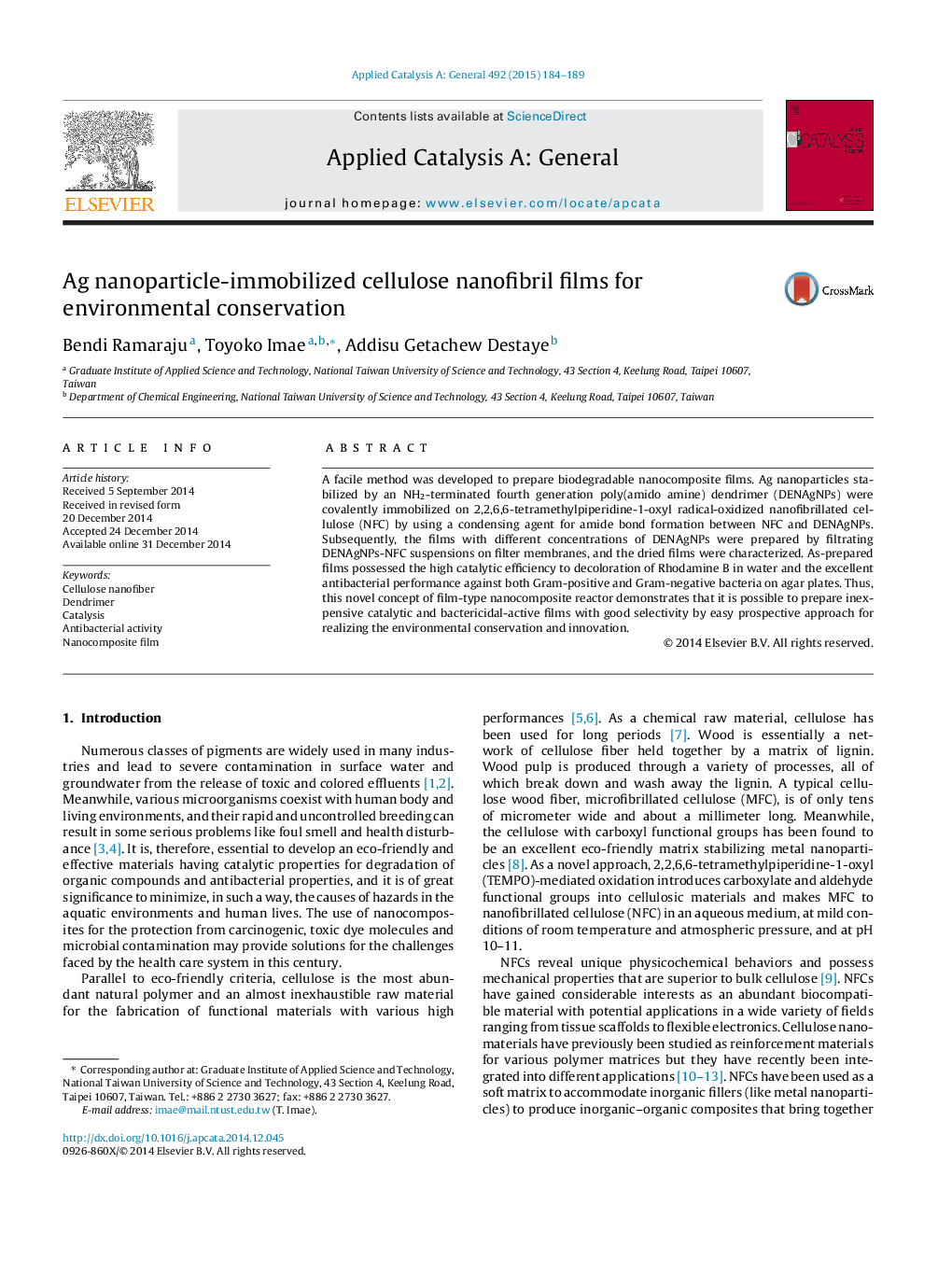| Article ID | Journal | Published Year | Pages | File Type |
|---|---|---|---|---|
| 39229 | Applied Catalysis A: General | 2015 | 6 Pages |
•Dendrimer-protected Ag nanoparticle was chemically bound on nanofibril cellulose.•A biodegradable nanocomposite film was prepared by the filtration method.•The films possessed a high catalytic efficiency to decoloration of Rhodamine B.•The films displayed an excellent antibacterial performance against bacteria.
A facile method was developed to prepare biodegradable nanocomposite films. Ag nanoparticles stabilized by an NH2-terminated fourth generation poly(amido amine) dendrimer (DENAgNPs) were covalently immobilized on 2,2,6,6-tetramethylpiperidine-1-oxyl radical-oxidized nanofibrillated cellulose (NFC) by using a condensing agent for amide bond formation between NFC and DENAgNPs. Subsequently, the films with different concentrations of DENAgNPs were prepared by filtrating DENAgNPs-NFC suspensions on filter membranes, and the dried films were characterized. As-prepared films possessed the high catalytic efficiency to decoloration of Rhodamine B in water and the excellent antibacterial performance against both Gram-positive and Gram-negative bacteria on agar plates. Thus, this novel concept of film-type nanocomposite reactor demonstrates that it is possible to prepare inexpensive catalytic and bactericidal-active films with good selectivity by easy prospective approach for realizing the environmental conservation and innovation.
Graphical abstractFigure optionsDownload full-size imageDownload high-quality image (177 K)Download as PowerPoint slide
